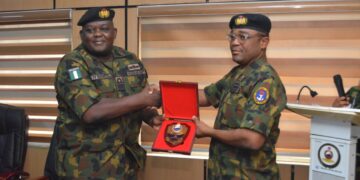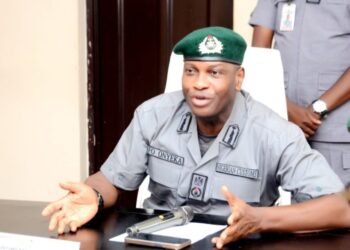INTRODUCTION
The first confab of
Nigerian playwrights was held at the Obafemi Awolowo University(OAU), Ile-Ife from 8th-10th
March, 2013 at the Conference Centre.
The confab organized by the Institute of
Cultural Studies in conjunction with the Department of Dramatic Arts of the University
attracted over one hundred playwrights across generational and geographical divides.
Nigerian playwrights was held at the Obafemi Awolowo University(OAU), Ile-Ife from 8th-10th
March, 2013 at the Conference Centre.
The confab organized by the Institute of
Cultural Studies in conjunction with the Department of Dramatic Arts of the University
attracted over one hundred playwrights across generational and geographical divides.
The confab, an initiative
of renowned playwright Femi Osofisan, had several themes necessary for an
appraisal of the playwriting enterprise. These themes included but was not
limited to the state of playwriting in the post-military era; the playwright’s
experience in contemporary society; philosophy, ideology and culture in
Nigerian and African playwriting; the quality of plays in our dramatic
literature over the decades; the problems of having plays staged and published typically
encountered by playwrights especially of the younger generation;
inter-generational and intra-generational relations between Nigerian
playwrights with special reference to the complexities of the influence of the
“Masters”; and relations between playwriting for the stage, for films, for
television and for publication as literature.
of renowned playwright Femi Osofisan, had several themes necessary for an
appraisal of the playwriting enterprise. These themes included but was not
limited to the state of playwriting in the post-military era; the playwright’s
experience in contemporary society; philosophy, ideology and culture in
Nigerian and African playwriting; the quality of plays in our dramatic
literature over the decades; the problems of having plays staged and published typically
encountered by playwrights especially of the younger generation;
inter-generational and intra-generational relations between Nigerian
playwrights with special reference to the complexities of the influence of the
“Masters”; and relations between playwriting for the stage, for films, for
television and for publication as literature.
OBSERVATIONS
The confab identified the
crises and challenges confronting playwriting and playwrights such as crisis of
relevance, crisis of visibility, crisis of fragmentation of community, and
crisis of exhaustion; funding; language; censorship and tyranny in both the
military and post-military eras; and the survival strategies of writers; the
mass illiteracy and the absence of a vibrant reading culture in the Nigerian
nation; and the problem of alienation of the masses due to their
marginalization by the elites. The confab also discussed the question of who
the playwright is writing for, the dearth of theatres in which to stage plays
and the challenges posed to live theatre by various social media such as film,
television and more importantly the viewing centres dedicated mostly foreign
soccer leagues.
crises and challenges confronting playwriting and playwrights such as crisis of
relevance, crisis of visibility, crisis of fragmentation of community, and
crisis of exhaustion; funding; language; censorship and tyranny in both the
military and post-military eras; and the survival strategies of writers; the
mass illiteracy and the absence of a vibrant reading culture in the Nigerian
nation; and the problem of alienation of the masses due to their
marginalization by the elites. The confab also discussed the question of who
the playwright is writing for, the dearth of theatres in which to stage plays
and the challenges posed to live theatre by various social media such as film,
television and more importantly the viewing centres dedicated mostly foreign
soccer leagues.
The confab also identified
the problems of distraction occasioned by survival needs that lead to acceptance
of appointments that reduce commitment to the creative enterprise; the
phenomenon of too many self-published plays that are of low quality by younger
playwrights in terms of both form and content as a result of lack of good
editorial input. Another major problem identified at the confab was the decline
in reading culture which, among other factors, can be traced to the removal of
Literature in English as a compulsory requirement for Ordinary Level education.
the problems of distraction occasioned by survival needs that lead to acceptance
of appointments that reduce commitment to the creative enterprise; the
phenomenon of too many self-published plays that are of low quality by younger
playwrights in terms of both form and content as a result of lack of good
editorial input. Another major problem identified at the confab was the decline
in reading culture which, among other factors, can be traced to the removal of
Literature in English as a compulsory requirement for Ordinary Level education.
A major point of
contention at the confab was the imitation of masters by younger playwrights
who borrow creative idioms without understanding their true essence thereby
producing works that do not adequately or authentically reflect their
contemporary realities.
contention at the confab was the imitation of masters by younger playwrights
who borrow creative idioms without understanding their true essence thereby
producing works that do not adequately or authentically reflect their
contemporary realities.
RECOMMENDATIONS
In relation to the observations
above, the confab recommends that:
above, the confab recommends that:
1. Playwrights should make
their plays relevant to the needs of the society.
their plays relevant to the needs of the society.
2. Playwrights should advocate
the building of cottage theatres in all local government areas of the country
the building of cottage theatres in all local government areas of the country
3. A national community or
organization of playwrights should be inaugurated
organization of playwrights should be inaugurated
4. Retreats or centres should
be created where tools for play writing
and play production are readily available.
be created where tools for play writing
and play production are readily available.
5. There is a need for
writers to break away from Greaco-Roman models and create authentic African
paradigms.
writers to break away from Greaco-Roman models and create authentic African
paradigms.
6. Drama and theatre should
become a staple in school curriculum throughout the country.
become a staple in school curriculum throughout the country.
7. A vibrant reading culture
should be inculcated as an important feature of Nigerian society.
should be inculcated as an important feature of Nigerian society.
8. Reading clubs and debating
societies also be reintroduced in
schools as they once existed in primary and secondary schools in Nigeria
societies also be reintroduced in
schools as they once existed in primary and secondary schools in Nigeria
9. The confab be made a
biennial event as a way of consolidating the tremendous achievements of the
confab, with special regard to sustaining vital activities and contacts in the
periods between confabs.
biennial event as a way of consolidating the tremendous achievements of the
confab, with special regard to sustaining vital activities and contacts in the
periods between confabs.
Conclusion
The confab
observed a minute’s silence in honour of playwrights and theatre practitioners such as
Hubert Ogunde, Kola Ogunmola, Ken Saro Wiwa ,Ola Rotimi, Zulu Sofola, Duro
Ladipo, Bode Osanyin, Esiaba Irobi, Ossy Enekwe, Laide Adewale, and Wale Ogunyemi and others.
observed a minute’s silence in honour of playwrights and theatre practitioners such as
Hubert Ogunde, Kola Ogunmola, Ken Saro Wiwa ,Ola Rotimi, Zulu Sofola, Duro
Ladipo, Bode Osanyin, Esiaba Irobi, Ossy Enekwe, Laide Adewale, and Wale Ogunyemi and others.
The next
confab is to hold in 2015 at the same venue, Obafemi Awolowo University, Ife
with Professor Femi Osofisan given the mandate to organise it
confab is to hold in 2015 at the same venue, Obafemi Awolowo University, Ife
with Professor Femi Osofisan given the mandate to organise it































































